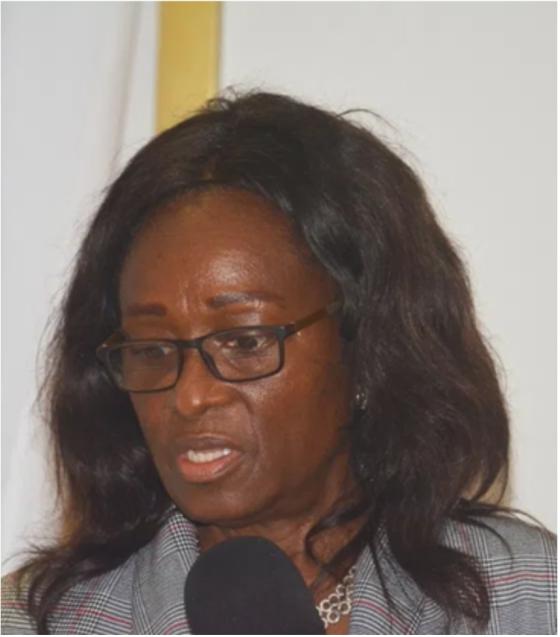Liberia: NEC Defends Biometric Voting System

Davidetta Browne-Lansanah, chairperson of the National Elections Commission
.... “Contrary to reports, NEC has trained technicians and there will be continuous training to conduct a biometric voter registration exercise, which includes the use of facial recognition and fingerprint," the NEC chair Davidetta Browne - Lansanah said.
The National Elections Commission (NEC) has pushed back against accusations that the introduction of a biometric voting system would disenfranchise rural voters due to poor internet connectivity.
The electoral body's defense comes as the Elections Coordinating Committee (ECC), Liberia’s largest domestic election observation network, warned that the biometric system is not a silver bullet against electoral fraud. The ECC's concern comes as biometric voting systems in times past have led to voters disenfranchisement. This is due to unexpected hitches the system can encounter at any point in time.
But Davidetta Browne- Lansanah, the chairperson of the NEC, while responding to concerns of members of the House of Representatives, assured lawmakers of an internet connection backup plan for rural voters. The NEC boss added that they are expected to use Lonestar, Orange, and Libtelco internet connections to reach hard-to-reach rural areas and other internet alternatives.
“With 60% of the country having internet connectivity and 40% without, there will be regional internet connectivity — using either Lonestar, Cellcom, or Libtelco internet boosters. At the same time, there will be manual voter registration for subsequent uploading into the 'NEC Cloud.'
“There will be encryption on the NEC Cloud and also an encrypted backup plan will be put in place,” Lansanah said in defense of NEC. “Contrary to reports, NEC has trained technicians and there will be continuous training to conduct a biometric voter registration exercise, which includes the use of facial recognition and fingerprint.”
The NEC’s planned move to a biometric system comes at a time when it is expected that more than two million Liberians will be eligible to vote in the 2023 presidential and legislative elections. The biometric system would help to better secure the NEC voter roll and the integrity of the elections process: voter registration, voter verification, and the transmission of results.
The NEC has for years been under pressure to dash its optical manual registration (OMR) system. The OMR system, for many, does not improve the accountability and transparency of electoral processes and is usually tainted by controversy and mistrust. In a biometric voting system, the voters are registered based on their unique physical characteristics like fingerprints and even facial recognition.
However, there have been fears that while the system may eradicate double registration, it will not solve the issue of voter trucking which is associated with vote buying, a phenomenon that is becoming institutionalized in the country’s fragile democracy.
This fear was first raised by the ECC, which has disclosed that the technology, if it is set up properly and in a timely manner, can add value to the quality of the electoral process, thereby minimizing double registration, automatic de-duplication fraud, and manipulation of the voter roll.
“This is the first time the NEC will be using the technology for the registration of voters but the transition is not free of risks. [While] biometrics may eradicate double registration, it will not solve the issue of voter trucking which is associated with vote buying, a phenomenon that is becoming institutionalized in the country’s fragile democracy. “
This same concern is being shared by Montserrado County District #4 Representative, Rustonlyn Suacoco Dennis, who claimed that the system would do nothing to stop duplication, and cyberattacks, and might disenfranchise voters due to internet connectivity issues.
The lawmaker also raised issues about the lack of pilot digital elections to assess NEC and technology readiness and requested the electoral body to revert the country to manual voter registration.
It was based on Dennis's letter to the House plenary that led to the appearance of the NEC boss and some co-officers. Dennis was later joined by other lawmakers, including Reps. Richard Koon, Jimmy Smith, and Moima Briggs Mensah speak out against the use of biometric voting systems in the 2023 elections.
The lawmakers noted that the NEC's failure to do a pilot digital election raises concerns about the NEC providing a credible voters row that would be without a problem. But the NEC boss, Lansanah, said that the system instead aims to prevent duplication of votes as well as the eradication of vote trucking.
"The best medicine for vote trucking is biometric voter registration," Lansanah said. “The system will ensure that the 2023 elections take place in the utmost democratic environment.”
However, she did not disclose how the biometric voting system will end voting trucking. Earlier, the NEC boss said that “The advantages of biometric voter registration include prevention of multiple voter registrations, ensuring that there is the accuracy of the information collected and creation of voter identification for each voter. It also has the ability to trace all acts of impersonation, remove all duplicated records of voter registration, and eradicate issues of unintentional errors during the data entry process.”
